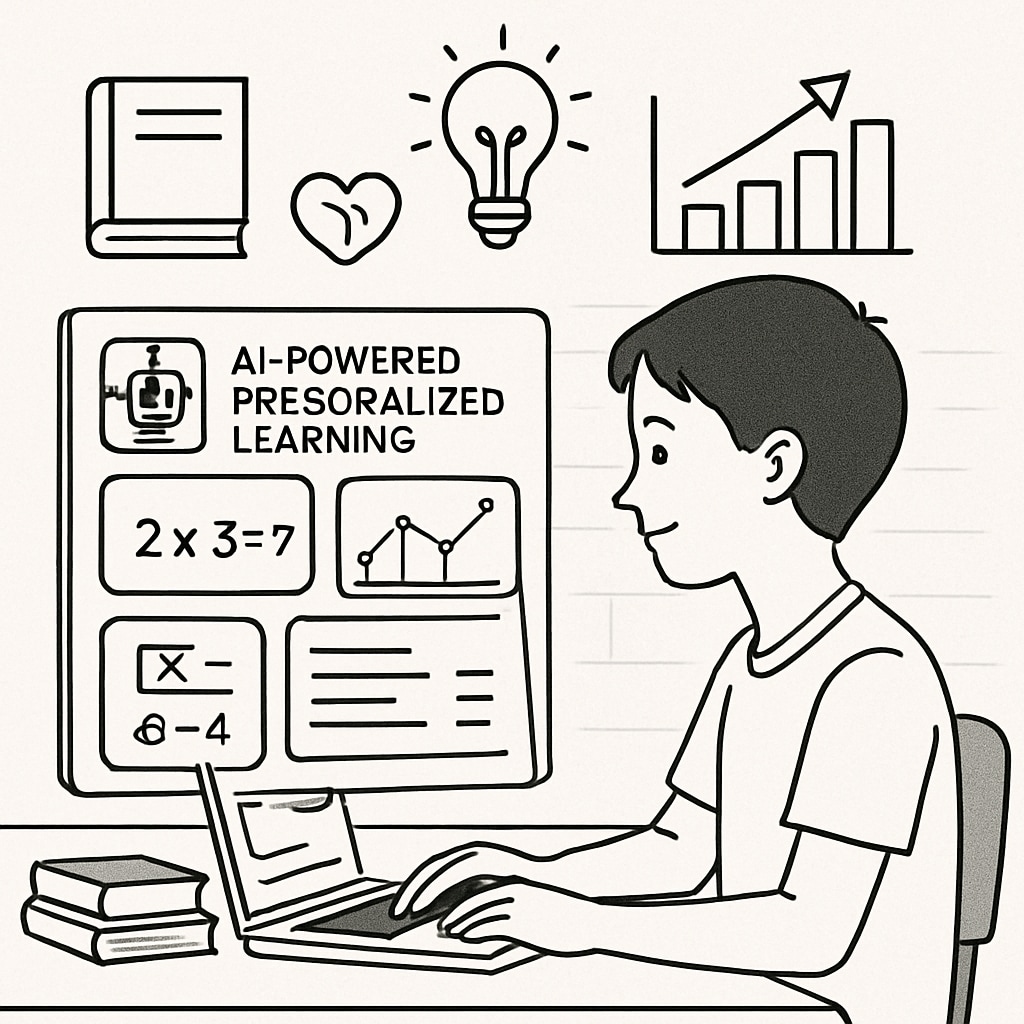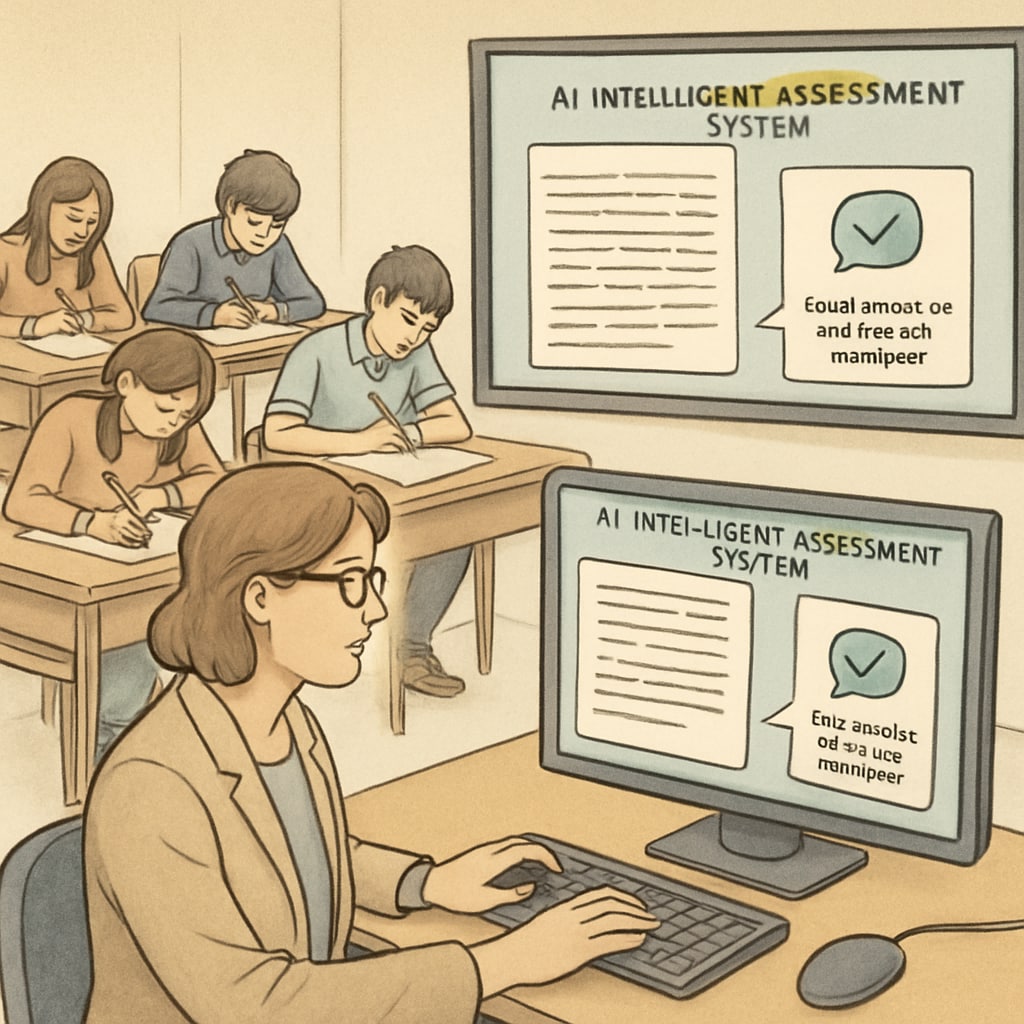The integration of artificial intelligence in education is driving a profound transformation in classrooms worldwide, reshaping teaching methods and learning experiences for students. As AI continues to evolve, it is enabling personalized learning, automating administrative processes, and redefining how educators assess and support students. These advancements highlight the potential of AI to revolutionize K12 education and set new standards for the future of learning.
How AI Is Revolutionizing Personalized Learning
One of the most significant impacts of artificial intelligence in education is its ability to deliver personalized learning experiences. Traditional classrooms often struggle to meet the diverse needs of students, as teachers must cater to a wide range of abilities and learning styles. AI-powered tools, such as adaptive learning platforms, address this challenge by tailoring educational content to each student’s unique pace and preferences.
For example, platforms like DreamBox and Khan Academy use AI algorithms to analyze student performance in real-time, adjusting lesson difficulty and content accordingly. This ensures that learners remain engaged and challenged without feeling overwhelmed or disengaged. As a result, personalized learning not only boosts academic outcomes but also fosters a deeper love for learning among students.

The Role of Intelligent Assessment Systems
Another transformative application of AI in education is the development of intelligent assessment systems. Traditional evaluation methods, such as standardized tests and manual grading, can be time-consuming and prone to bias. AI-driven assessment systems offer a more efficient and objective alternative, enabling educators to gain deeper insights into student performance.
These systems leverage natural language processing (NLP) and machine learning to analyze written responses, identify patterns, and provide constructive feedback. For instance, platforms like Gradescope and Turnitin use AI to evaluate essays and assignments, highlighting areas for improvement while reducing the administrative burden on teachers. Intelligent assessment systems also help identify learning gaps, allowing educators to intervene early and provide targeted support to struggling students.

Global Implications of AI-Driven Education
The rapid adoption of artificial intelligence in education is not limited to developed countries; it is also creating opportunities for students in underserved regions. AI-powered tools are bridging gaps in access to quality education, enabling learners in remote areas to access world-class resources and instruction.
For instance, AI chatbots and virtual tutors are providing 24/7 support to students, answering questions and explaining complex concepts in multiple languages. Additionally, AI-driven platforms are helping educators design culturally relevant content that resonates with diverse student populations. As a result, AI is not only transforming how students learn but also democratizing education on a global scale.
Challenges and Ethical Considerations
While the benefits of AI in education are undeniable, its implementation also raises important ethical and practical concerns. Data privacy is a major issue, as AI systems require access to vast amounts of student information to function effectively. Ensuring that this data is collected and used responsibly is critical to maintaining trust and protecting student rights.
Moreover, the reliance on AI tools could potentially widen the digital divide, as not all schools and communities have equal access to the necessary technology and infrastructure. Policymakers, educators, and technology providers must work collaboratively to address these challenges and ensure that the benefits of AI-driven education are equitably distributed.
The Future of Learning with AI
As artificial intelligence continues to advance, its role in education is expected to grow even more significant. Emerging technologies such as augmented reality (AR) and virtual reality (VR), combined with AI, promise to create immersive and interactive learning environments. These innovations have the potential to make education more engaging and accessible, preparing students for the demands of the 21st-century workforce.
In conclusion, artificial intelligence in education represents a powerful force for change, driving a global transformation in how we teach and learn. By harnessing the potential of AI, educators can create more inclusive, effective, and inspiring learning experiences for students worldwide, paving the way for a brighter future.
Readability guidance: The article employs short paragraphs, clear headings, and lists where appropriate. Active voice is prioritized, and transitions like “however,” “in addition,” and “as a result” are used to ensure smooth flow. Images are described and integrated seamlessly with the content.


